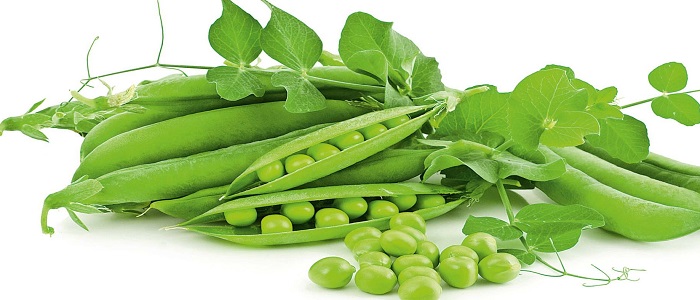Pea is a very important nutrient with its protein, carbohydrate, phosphorus, potassium and vitamin A content. And also; since it contains a large amount of various fiber substances that can be easily dissolved, it has a lowering effect especially on bad cholesterol levels in the blood and reduces the risk of having a heart attack. Pea, which contains high vitamin B1, regulates sleep. It improves appetite and improves the mental state of a person and makes person happy. Researches have shown that consuming peas reduces the risk of developing cancer. It is known that the fresh pea, which removes anemia and persists, has a protective effect against blood cancer. Acute appendicitis is rarely seen in people who consume peas very much. There are some contraceptive substances in pea: they have effects on birth planning that help both women and men. This kind of peas called Sultani pea is eaten together with its shell. Another important variety is the pea with large grains. Pea grains are freshly cooked and eaten in various dishes, dried, frozen and canned, and also very convenient to store for future consumption. Flour made from dried peas is used to make pea soup and some dishes.
How to grow?
The pea plant is propagated by seeds (dried grains). These seeds are planted directly in the garden or field where pea cultivation will take place. Peas are warm, humid and cool climates. If the temperature drops below -5 degrees, the plant freezes. The pea plant germinates between 4-10 degrees and starts to develop.


